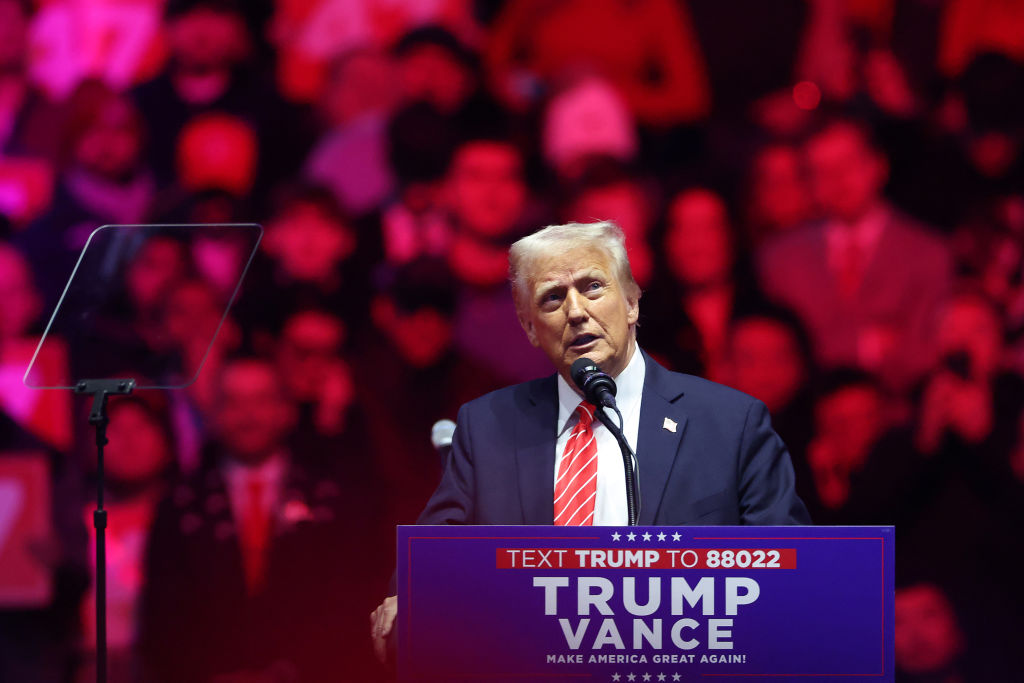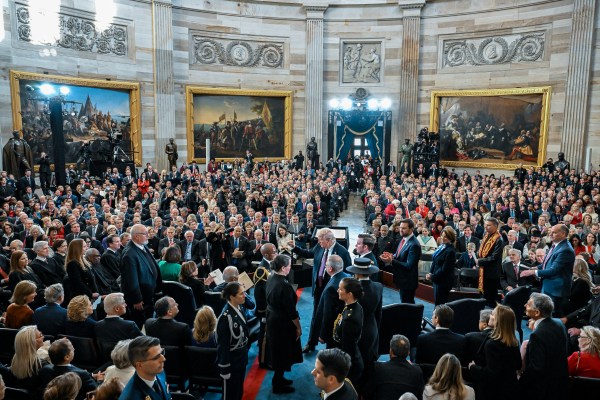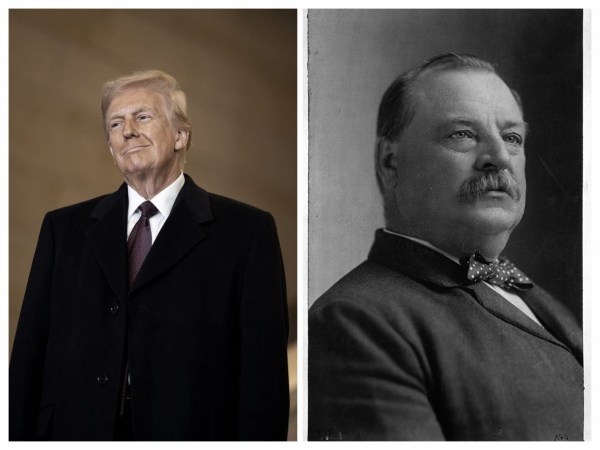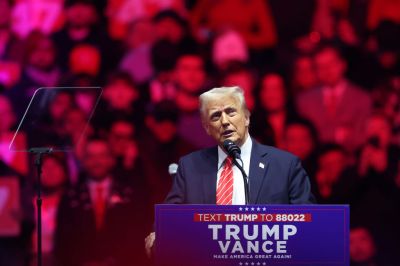As a second Trump administration dawns—or, for his opponents, descends—on America, an interesting and unusual discussion has emerged over the broader meaning of Trump’s victory. One thing that makes it unusual is that there’s more consensus than disagreement about the fundamental point: There’s been a significant “vibe shift” in American politics.
That’s not the way things typically work. Every victorious party claims a “new era” of some kind, but the losing side usually dissents. That’s because, historically, ideologues and activists are sufficiently confident (and invested) in their views to insist any mere electoral defeat was a fluke or one-off—flawed candidates, flawed campaigns, economic conditions, whatever. “Our ideas aren’t the problem, we just nominated the wrong candidate” has long been the traditional ideological, psychological, and political safe harbor for losers.
It’s not that the 2024 election doesn’t offer plenty of fodder for such interpretations. Trump’s win was modest. His Electoral College margin ranks 44th out of 60 contests. He won the popular vote by 1.5 points. This was no landslide. Kamala Harris, far from an ideal candidate, had little time to put together a campaign. Joe Biden was enduringly unpopular and physically inadequate to the job. Inflation is political cancer for any incumbent. And we heard all that during the traditional recriminations phase right after the election.
But the vibe-shift conversation is about something more fundamental than finger-pointing. Trump’s “cultural victory” feels “tectonic,” in the words of New York Times columnist Ezra Klein. He suggests four factors for why this might be: The right has the upper hand on social media, corporations are looking for an opportunity to swing back to the middle after lurching left, Trump benefits from a bro backlash against allegedly feminized culture, and Joe Biden allowed Trump to stay the center of attention during his own presidency.
I don’t fundamentally object to any of these as partial explanations, but they don’t fully capture what’s happening or why progressives are willing to agree that something more fundamental has changed. For instance, another important factor is that MAGA is part of a larger global phenomenon. Populism and nationalism have been on the rise in Europe, Latin America and India. History is often punctuated by such moments (for example, the student protest movement that erupted around the world in the 1960s). The trends that have shaped American politics—the global financial crisis, mass immigration, COVID, inflation—were not contained within our borders.
But I think the most important driver of the vibe shift is that Trump and Trumpism have shattered a near metaphysical consensus about politics, on the right and left.
Pre-Trump American conservatism was dedicated to a few fundamental propositions: limited government, cultural traditionalism, anti-abortion politics, fiscal rectitude, and free market economics. Now, I’m the first to concede the right often fell short of its ideals, but showing rhetorical fealty to the ideals was the binding firmament of conservatism. Those commitments still get some lip service, but there’s no denying that on all of these fronts, loyalty to Trump is the more pressing litmus test. This has freed up Trump to move leftward on abortion, entitlements and economic policy generally.
As damaging as I think this has been to conservatism, Trump’s victory may prove to be more damaging to the left. Because Trump didn’t merely shatter the consensus on the right, he shattered the political consensus generally. Or maybe social media and those other trends were the battering rams and Trump merely benefited from the new landscape.
Either way, the fact remains that the bedrock assumptions about how politics “works” and the rules for what a politician can or can’t do, no longer seem operative. We’re all familiar with how his behavior has demonstrated that, but it’s also illuminated that the electorate itself is just different today. The FDR coalition is gone, the white working class is now operationally conservative, and the Latino and black working classes are now seen as gettable by Republicans. The assumption that they are “natural Democrats” was obliterated in this election. Republicans have figured out how to talk to those constituencies. Meanwhile, progressives who grew up knowing only the language of FDR-era class politics or post-civil rights era racial and feminist discourse have found large numbers of voters—their voters—don’t want to hear it anymore. That disorienting feeling, that sense that history or demography or the “moral arc of the universe” might not be bending in your direction any more, is what some call a “vibe shift.”







Please note that we at The Dispatch hold ourselves, our work, and our commenters to a higher standard than other places on the internet. We welcome comments that foster genuine debate or discussion—including comments critical of us or our work—but responses that include ad hominem attacks on fellow Dispatch members or are intended to stoke fear and anger may be moderated.
With your membership, you only have the ability to comment on The Morning Dispatch articles. Consider upgrading to join the conversation everywhere.